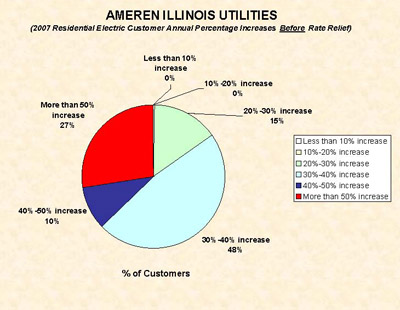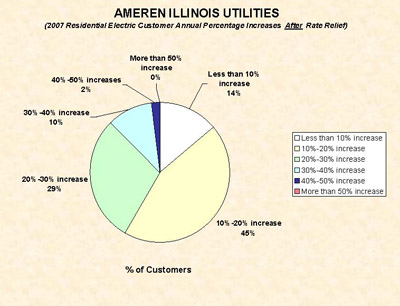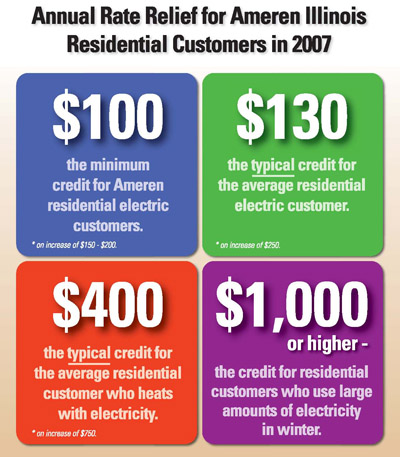During the “new business” portion of Tuesday’s City Council meeting, Mayor Ardis distributed a memo to all the council members that said:
I am attaching a communication that I sent to the previous council this past spring with a few examples of Parental Responsibility Ordinances being used in other cities. l would like to entertain a discussion on the need for a similar ordinance in Peoria sometime in August.
Attached to the memo were copies of ordinances from five other communities: Des Plaines, IL; Grand Rapids, MI; Royal Oak, MI; Silverton, OR; and Cincinnati, OH (repealed 2002). The council will discuss this topic at the August 28 council meeting.
Rarely Enforced
It’s not surprising that this would come up again right after an unsupervised 15-year-old threw a stone off an I-74 overpass, killing the passenger of a passing car. But how effective are these laws? According to “An Empirical Study of Parental Responsibility Laws” published just last year in the Utah Law Review, not very.
University of Oregon School of Law professor Leslie Joan Harris surveyed every police chief and prosecutor in the state of Oregon and found that “the responses to the questionnaires showed overwhelmingly that parental responsibility laws are rarely, if ever, enforced in most places.” Instead, she finds that they are generally symbolic, “enacted to articulate community values about proper parenting and to induce ‘bad’ parents to reform.” However, such laws do increase the probability that curfew laws will be more stringently enforced. She concludes (emphasis added):
Finally, parental responsibility laws define youth crime as a private problem born of familial failure rather than behavior that, at low levels, is a usual part of the maturation process and, at higher levels, may call for collective efforts to engage teenagers in positive ways, including helping parents in difficult situations. The laws provide politicians with a cheap and easy way of avoiding meaningful efforts to address significant social issues.
I’d recommend reading the whole report as it’s very interesting; it includes a brief history of parental responsibility laws over the last hundred years. It’s interesting to note that these findings are consistent with Jennifer Davis’s report in the Journal Star today. Davis has been calling the communities listed in the Mayor’s memorandum and has so far found that their ordinances are rarely, if ever, enforced as well.
Likely Unconstitutional
But there’s a bigger problem on the horizon for parental responsibility laws. On June 29, 2007, a municipal judge in Cuyahoga County, Ohio, ruled that the city of Maple Heights’s parental responsibility law is unconstitutionalbecause it violates the due process clause of the fourth amendment. (All legal documents related to this ruling are available here. Here’s a PDF version of the ruling.)
Maple Heights’s ordinance was patterned after the one in Silverton, Oregon (which is one of the ordinances being reviewed by Peoria as a possible template as well), and reads in part:
(a) A person commits the offense of failing to supervise a minor if: the person is the parent, legal guardian, or person with legal responsibility for the safety and welfare of a child under 18 years of age, and the child has committed a status offense, unruly act or a delinquent act that would be a misdemeanor or felony of any degree if committed by an adult.
(b) It shall be a defense to the offense of failure to supervise a minor if the person took reasonable steps to control the conduct of the child at the time the person is alleged to have failed to supervise.
Judge Jennifer P. Weiler explains why this does not stand constitutional muster. “The due process clause of the United States Constitution requires proof beyond a reasonable doubt of every fact necessary to constitute the offense charged.” In other words, a person is presumed innocent until proven guilty — the burden of proof is on the accuser. Weiler continues:
The substance of the Maple Heights offense is the failure to supervise a minor. However, the ordinance presumes a violation where a parent has a child who has committed an offense. It is up to the parent to demonstrate that reasonable steps were taken to control the child’s conduct. As such, it is the accused’s burden to demonstrate there was no failure to supervise. This contravenes…the due process requirements….
The ordinance also failed on two other due-process counts. Nevertheless, the City of Maple Heights filed their notice of appeal last Friday, July 20 says Blake Ledbetter of Conoscienti & Ledbetter in Atlanta, Georgia. This isn’t to say that an ordinance couldn’t be crafted that would be consistent with the constitution, but it does reveal that existing ordinances haven’t yet been adequately tested in court.
Just for the record, when I started researching this I was in favor of a parental responsibility ordinance for Peoria. I came to this topic predisposed to look for positive evidence of its efficacy. However, considering the unlikelihood of enforcement, and the questionable constitutionality of such laws, I’m now inclined to think that this is probably not a very effective tool to combat juvenile crime in Peoria.


 The
The 


 Gov. Blagojevich
Gov. Blagojevich  The Springfield
The Springfield  The Open Meetings Act (OMA) is hard to follow. Even people like me who want to follow it conscientiously can sometimes find that we’ve inadvertently violated it. So, I just want to acknowledge up front that you really have to be on your toes when it comes to OMA.
The Open Meetings Act (OMA) is hard to follow. Even people like me who want to follow it conscientiously can sometimes find that we’ve inadvertently violated it. So, I just want to acknowledge up front that you really have to be on your toes when it comes to OMA.  Now
Now